Imagine if all the trees and minerals in the Yanomami Indigenous Territory were ripped out of the ground in the space of a single year. The trees would be sold to make furniture, houses, paper, firewood, or works of art in upscale galleries. The gold would be purchased to create jewelry, manufacture electronic products, or stored away as a reserve of wealth. Tin would be extracted from the cassiterite and used to make cans, auto parts, glass, and mobile telephones.
In the short-run, these 12 months of total extraction from the Yanomami Territory – Brazil’s largest – would be a boom for the economy. GDP would rise, economists would celebrate, rosy headlines would appear in the press, Brazil’s “rating” from investment risk assessment agencies would probably rise, and the “market” might even start to look favourably on the government.
In the meantime, the conversion of the 96,000 square kilometers of Yanomami Indigenous Territory – the same size as the states of Rio de Janeiro and Espírito Santo combined – into commodities would impact life throughout the planet. The Amazon Rainforest would be pushed much closer to the point of no return, the greenhouse gas emissions causing global heating would accelerate, rainfall regimes would be impacted, millions of plants, animals and fungi would die, and species would disappear, and the nearly 31,000 current human inhabitants of the Yanomami Territory would no longer be able to live there. The end of the Yanomamis’ forest-earth would represent, in the words of its most famous shaman Davi Yanomami Kopenawa, the falling of a sky that they have worked so hard to hold up – a sky that would come crashing down upon all life in the world.
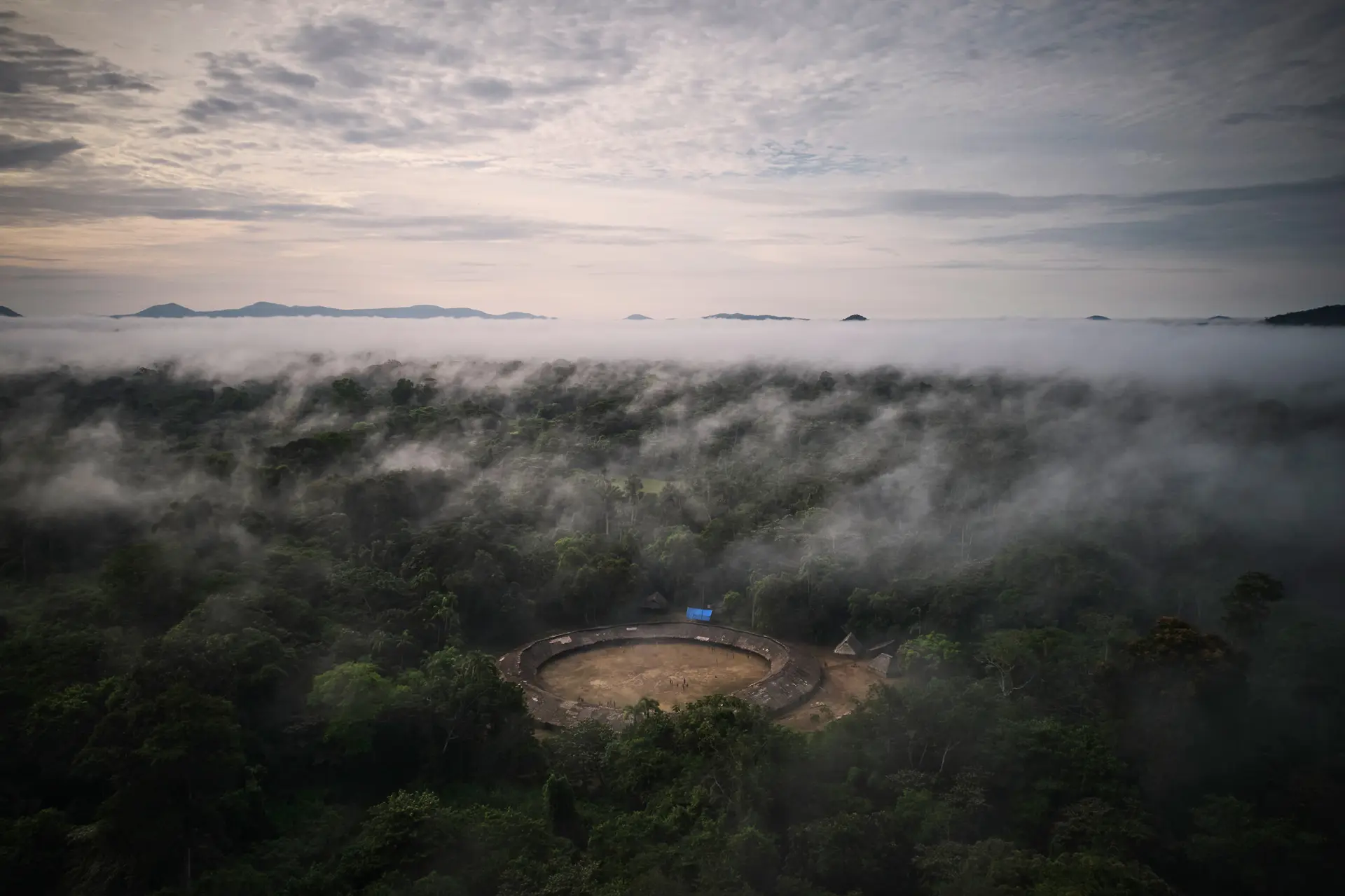
THE YANOMAMI FEAR OF THEIR FOREST BEING TURNED TO GOODS IS THE RESULT OF CENTURIES OF PREDATORY EXTRACTIVISM IN THE NAME OF PROFITS. PHOTO: PABLO ALBARENGA/SUMAÚMA
It is important to remember GDP is not a translation of a place’s “wealth”, nor is it an indicator of the usefulness of production, nor is it a measure of whether the environmental and social consequences of economic activities are good or bad. GDP is the sum of the final price of all of the products and services produced in a given period, usually one year. Growth – or the lack thereof – in the GDP is a frequent topic of press headlines and of the discourse of economists, politicians, and the government. The necessity for GDP growth has been a stronger certainty than the dogmas of many religions. The delay in questioning this dogma and collectively building alternatives is leading us to the collapse of life.
The complete conversion of an Indigenous Territory into commodities is still a hypothetical scenario, thanks to the resistance of the Indigenous peoples and their allies. Yet Nature’s transformation into consumer goods is real, continuous, and active in almost every biome on the planet, worsening global heating and contributing to more frequent and intense extreme weather. Questions about the dogma of GDP growth have little or no room in most centers of power, from parliaments and governments to the press and universities. Yet they exist. More than ever, there is an urgent need to debate this orthodoxy.
Intellectuals and socio-environmental movements from all over the world are warning with increasing urgency that capitalism and its rationale of infinite growth must be checked to prevent the collapse of Life. There are at least three main currents are leading this discussion: “degrowth,” which has a stronger presence in materially wealthy countries, especially in Europe; “post-extractivism,” born of the struggles to defend collective territories and Nature in Latin American countries; and “eco-socialism,” made up partly of Marxists critical of the system that existed in the former Soviet bloc.
These movements dialogue with each other, even though they are internally heterogeneous and do not share the same thinking about what an alternative system could be. Nevertheless, they all defend the idea that growth in production and consumption, as measured by GDP, cannot be the criterion for well-being in a society that is sustainable. In the countries of the Global South – the nations that make up the “Third World” or that are on the “periphery” of the global economy – there are also questions about the idea of development as reproducing the model used by wealthy countries, as well as a demand for radical change in the international economic and financial system.
For an economy compatible with life
There have long been critiques of GDP, and even the Brazilian Institute of Geography and Statistics warns on its website that “[GDP] helps to understand a country, but it does not express important factors, such as income distribution, quality of life, education, and health. A country can have a low GDP and display a very high standard of living, as well as have a high GDP and a relatively low standard of living.”
Proponents of an economy compatible with the survival of life on the planet go beyond this, however. In many of their writings, Greek economist Giorgos Kallis and economic anthropologist Jason Hickel, a native of Eswatini (formerly Swaziland), two of the foremost degrowth theorists, say the solution would not be to simply replace GDP with another indicator if the logic of continued growth, inherent to capitalism, remains untouched.
Unlike the commercial exchanges that have always existed in human societies, capitalism is driven by an incessant search to accumulate money through profits. Part of these profits are then invested in producing new goods and services, creating new consumer needs. This creates exponential growth because it is applied to prior growth – if a country’s GDP grows by 3% each year, in 23 years it will have doubled in size.
Profits come from the difference between what is expended to produce a good or service and its price. This difference is bigger when a worker makes less because part of their sustenance is not compensated – such as healthcare, childcare or home maintenance – or when their work is replaced by energy-powered machines. This energy is drawn from Nature, most notoriously in the form of fossil fuels (oil, coal, and natural gas) starting with the Industrial Revolution, in the 18th century. For profits to be higher, Nature must also be “cheap.” The hypothetical scenario where Yanomami Territory is turned completely into goods has already occurred in some regions invaded and ransacked by European colonisers, and it continues to occur in territories where raw materials are removed.
In the book Less Is More: How Degrowth Will Save the World, published in 2020, Jason Hickel argues that the old logic must be turned on its head. “What matters is not increasing aggregate production; what matters is that we are producing, if people have access to the things they need to live decent lives, and how income is distributed,” writes the Autonomous University of Barcelona professor and visiting professor at the London School of Economics.
Academics like him believe it is necessary to change the premises of the economic system so the goals to reduce greenhouse gas emissions and protect biodiversity set forth in international agreements can be met.

DEGROWTHERS ARGUE FOR FEWER CARS AND MORE COLLECTIVE TRANSPORTATION, WARNING THAT ‘GREEN GROWTH’ IS NOT POSSIBLE. PHOTO: JIM WATSON/AFP
Without radical change, global temperatures could rise by 3C
In 2015, countries committed, through the Paris Agreement, to lower their greenhouse gas emissions and prevent the average temperature on the planet from rising over 2 degrees Celsius as compared to the levels before the Industrial Revolution. To be secure, the rise in temperature should be as close as possible to 1.5C. In 2022, countries committed, within the Kunming-Montreal Global Biodiversity Framework, to conserving 30% of natural land and aquatic biomes and to restoring 30% of those already degraded by 2030.
Nevertheless, climate goals are far from being achieved and goals to protect biodiversity will be compromised if the pace of Nature exploration remains the same as today. And both – climate and biodiversity (Nature) – are connected.
Every year the United Nations Environment Programme publishes a report on the “emissions gap” – which compares the difference between promises, policies and actions of signatories to the Paris Agreement. The 2024 report, released in October, estimates that to stop the planet’s temperature from rising beyond 1.5 degrees Celsius, greenhouse gas emissions would need to be cut by 42% by 2030 and 57% by 2035, as compared to emissions levels in 2019. However, even if all of the countries fulfilled the promises they have made so far, the maximum reduction in 2030 will be 10%. This is far short of what is needed.
The consequence, according to this document, will be a temperature rise of between 2.6 and 3.1C within this century. Given how last year’s rise of 1.5C brought extreme climate events that devastated points as far away as Porto Alegre, in Brazil, and Valencia, in Spain, it is easy to imagine how catastrophic a 3C increase would be.
The burning of fossil fuels is responsible for 75% of greenhouse gas emissions. At the UN Climate Change Conference held in 2023 in the petro-state of Dubai, the countries promised for the first time to “move away from fossil fuels” to generate energy and to triple the production of renewable energy. The International Energy Agency is keeping tabs on the fulfillment of these promises. Its figures show that despite growth in solar, wind and biomass-produced energy, fossil fuel consumption is far from the 25% reduction that would be needed by 2030. On the contrary, it continues to grow.
And that’s not all. In March 2024, a report from the United Nations’ International Resource Panel showed the use of “material resources” from Nature – including metal and non-metal minerals (such as sand and limestone), fossil fuels, crops, pastures, and wood – rose by three and a half times: from 30 billion metric tons to 107 billion tons per year from 1970 to 2024. Usage is tremendously unequal: rich countries consume six times more than poor ones. Brazil is among the countries most extracting these materials, removing 4.8 billion metric tons in 2020. Most of what Brazil takes from Nature is sold abroad – the country ranks third among exporters of Nature transformed into goods.
Not just ignoring GDP, but a different type of society
The UN panel’s report projects the consumption of materials in energy generation, civil construction, transportation, and food could grow by over 60% by 2060, to around 170 billion metric tons per year. This growth is also due to demand for minerals to manufacture solar panels, wind power turbines, and batteries for electric car systems. The costs to the environment would be unbearable, according to the document, unless there is an “absolute decoupling” between the use of these materials and economic growth in high-income countries (as is the case of the United States and Europe) and in upper middle-income countries (as is the case of China and Brazil) – in other words, the amount of materials used and the greenhouse gas emissions would fall while the economy continues to grow, in what would be called “green growth.”
Those advocating for degrowth submit studies showing this math does not add up. It is not feasible, they argue, to maintain an indefinite increase in production and consumption while at the same time conserving Nature and replacing fossil fuels with renewables. Using a simple example, this means the solution is not for the approximately 94 million automobiles manufactured annually to be electric – but rather to increasingly exchange individual transportation for collective transportation.
In his book More Is Less, Jason Hickel defines degrowth as a “planned downscaling” in the excessive use of materials and energy, in order to “bring the economy into balance with the living world,” while at the same time distributing “income and wealth more fairly, and [investing] in public goods” that people need to flourish. He underscores that his proposal is not just a drop in the GDP, but rather that this indicator be ignored to build a different type of society, where people would have more free time to take care of each other and themselves – and would consume only what is essential.
Hickel and other researchers suggest transitional measures to reach this goal, starting in financially wealthy countries, which are historically responsible for the collapse of the climate and Nature. To shift production, they would use everything from ending “planned obsolescence” – when products are manufactured to last for a short time – to placing limits on bank financing for destructive activities that currently make huge profits, such as oil exploration and industries producing weapons, private jets and meat. To prevent unemployment and distribute income, proposals include universalizing and de-privatizing health, education and mass transport; a shorter work week; guaranteed jobs in public services and in “green” sectors of the economy; and cancellation of families’ education and housing debts.
A manifesto “For an Ecosocialist Degrowth,” published in 2022 in the Monthly Review, an American socialist magazine, also details some priorities. “The first and urgent measure is phasing out fossil fuels, as well as the ostentatious and wasteful consumption of the 1 percent rich elite [countries],” reads the text. “Many forms of production (such as coal-fired facilities) and services (such as advertising) should not only be reduced but suppressed; some, such as private cars or cattle raising, should be substantially reduced; but others would need development, such as agro-ecological farming, renewable energy, health and educational services, and so on. For sectors like health and education, this development should be, first and foremost, qualitative,” continues the manifesto. “Even the most useful activities have to respect the limits of the planet; there can be no such thing as an ‘unlimited’ production of any good.”
Among the signatories to the manifesto is Brazilian socialist and political economist Sabrina Fernandes, the director of research at the Alameda Institute. She says the issue is “to readjust the planet’s ‘material budget,’ allowing for a redistribution of capacities.” “Countries in the North need to make reductions and big ones to their energy demands, through a coordinated transition, for example, that allows energy consumption to be increased to provide quality of life in the South. But, of course, without illusions in the global periphery that we should raise consumption to the imperial lifestyle levels predominant in the North,” Sabrina Fernandes told SUMAÚMA.
She points out that “the math still has to add up in terms of global reduction, so the North needs to make significant reductions to create space for the South, which should in turn engage in a fair transition so that its rise in material consumption provides huge gains in quality without breaking metabolic limits” – that is, without generating more pollution than Nature is capable of absorbing.

COUNTRIES IN THE NORTH HAVE TO CONSUME LESS ENERGY AND THOSE IN THE SOUTH CANNOT FOLLOW THEIR MODEL, SABRINA FERNANDES SAYS. PHOTO: RAQUEL PELLICANO
In a 2018 interview with the European Green Journal, Giorgos Kallis, a professor at the Autonomous University of Barcelona, was asked whether capitalism could accommodate the end of growth. In theory it could, he answered, but it would be “an ugly capitalism.” “Without growth, you are left with a shrinking pie to redistribute. Under capitalism, this redistribution will most likely be in favor of those with more power. Stagnation under capitalism leads to exploding debt, and in the end austerity to protect profit,” he explains. “At the same time, I’m not the type of socialist who makes an abstract argument that first we have to get rid of capitalism for something better to appear. We need to make clear proposals and pursue and push reforms starting from where we are now. But sure, if all the reforms people like us propose were to be implemented, a system that could accommodate such reforms would not be capitalist in any meaningful sense of the term.”
The impossibility of infinite growth is an old, muffled idea
In an article written in 2017, Giorgos Kallis recalls the definition of economy put forth by Austrian thinker Karl Polanyi (1886-1964), a critic of the free market and the author of the classic work The Great Transformation. As summarized by Kallis, Polanyi defined the economy as the process through which “humans transform their material environment to provide for their needs.” This definition is useful to think about the origin of the idea that there are limits on what humans can do without altering how the Earth works and putting life on the planet at risk.
This idea began to be discussed in the 1960s and 1970s. Its most famous pioneer is Nicholas Georgescu-Roegen (1906-1994), a Romanian professor working in the USA after World War II. In 1971, he published the book The Entropy Law and the Economic Process. Georgescu-Roegen used concepts from physics to argue that Earth had a finite ability to assimilate the “waste” humans generate, without changing the Earth’s balance, when transforming Nature into energy and products. One obvious example of this “waste” that humans produce is the carbon gas released into the atmosphere when oil, coal, and gas are burned or when a forest is felled.
In 1972, the Club of Rome, a group of scholars, politicians and businesspeople, published a report that had repercussions and impacted discussions at the United Nations Conference on the Human Environment, the UN’s first on ecology, held in Stockholm, Sweden. Drafted by scientists at the Massachusetts Institute of Technology, in the United States, the study was entitled “Limits to Growth” and it said the planet would be unable to support unlimited economic and population growth.
“Limits to Growth” was attacked by the biggest names in economics at the time, who said the problem could be solved through innovation. While financially poorer countries found arguments that would block their development in the report. Neither the left, nor the Catholic church liked the suggestion of forced birth control, harking back to the ideas of Thomas Malthus (1766-1834), an English philosopher who attributed poverty to overpopulation. According to Jason Hickel, one of the study’s problems is that it was concerned with the supposed finiteness of materials from Nature that the economy needs to grow, rather than with the degradation of the ecosystem caused by infinite growth.
Five years later, in 1977, American economist Herman Daly (1938-2022) published Steady-State Economics. The book updated an idea being debated since the 19th century: that after a given stage of material abundance, the focus must be on “qualitative” rather than quantitative development. Daly was also behind the idea, popular among ecologists, of “uneconomic growth,” which happens when the environmental and social cost is greater than the cost of the goods and services produced.
In a 2018 interview with the New Left Review, a British publication, he recognized that “the steady-state economy” may not be compatible with capitalism, but he said this is the system we have now, meaning it would thus be necessary to “take away its power to do […] damage.” Daly made it clear that his proposal should be applied nationally by a strong State. He also said he thought it was too early to think about redistributing wealth on a global level – he argued this would imply a “world government,” and he did not have “confidence in global institutions.”
Georgescu-Roegen and Daly are considered pioneers in “ecological economics,” alongside Joan Martínez-Alier, a Catalonian and the author of the book The Environmentalism of the Poor, where he adds community resistance to the exploration of Nature to the debate. Martínez-Alier is an emeritus professor at the Institute of Environmental Science and Technology at the Autonomous University of Barcelona, where Hickel and Kallis also work.
Martínez-Alier served as a doctoral adviser to Beatriz Saes, a professor at the Federal University of São Paulo and the president of the Brazilian Society of Ecological Economics. “Herman Daly never liked to say that it would necessarily be a change to the economic system. He said that changes need to be made along the way, and we don’t know what it will be at the end and it doesn’t matter. While in degrowth, to the contrary, there has always been this post-capitalist idea,” she explains to SUMAÚMA.
In the timeline built by the movement, the word “degrowth” was coined in 1972 by Austrian and French philosopher André Gorz (1923-2007), who authored, among many books, Écologie et Politique (Ecology as Politics), in 1975, and Écologie et Liberté (Ecology and Freedom), in 1977. According to these records, Gorz asked: “Is the earth’s balance, for which no-growth – or even degrowth – of material production is a necessary condition, compatible with the survival of the capitalist system?” For Gorz, a socialism that fails to consider equality without growth would be nothing more than “the continuation of capitalism by other means.”

LEFTIST PHILOSOPHER ANDRÉ GORZ, WHO COINED THE WORD “DEGROWTH” IN THE 1970s, WITH HIS WIFE, DORINE. PHOTO: WIKIMEDIA COMMONS
Degrowth reemerges with anti-globalization protests
The word went into hibernation for nearly 30 years, at the end of the so-called “real socialism” period and when neoliberalism was on the rise. Many of the existing checks on capitalism in wealthy countries were suspended, and deregulation was also imposed on Global South nations. The liberalization of finance and trade moved most “dirty production” to “emerging” countries like China, as Beatriz Saes notes, in yet another transfer of the environmental costs of growth.
In the early 2000s, amidst anti-globalization protests, the idea of degrowth reemerged in France and spread through Europe, gaining renewed energy after the global financial crisis of 2008, which began in the United States. One of the intellectuals who popularized it was French economist Serge Latouche, the author of Farewell to Growth, published in 2007. In the book, he defines degrowth as a “political slogan,” which “can only be considered (…) in the scope of a system based upon a different logic,” a society “in which we can live better lives while working less and consuming less.”
A critic of the development policies sponsored by the former colonial powers in Africa, Latouche proposes seven principles for this change, including the “re-conceptualization” of terms like poverty and wealth, which do not consider what is important for life and what is outside of the market.
Latouche usually talks about the need for “decolonization of the imagination,” dominated by western consumer society, and he rebels against the term “sustainable development,” which he sees as an imposition destined to make it so that nothing changes. He laments that at the United Nations the expression has become consecrated to the detriment of “eco-development,” a term he considers “more neutral” and that had been proposed by Maurice Strong, the first executive director of the UN Environment Programme. “Degrowth was thrown explicitly as a ‘missile word’ to re-politicize environmentalism and end the depoliticizing consensus on sustainable development,” explains one of the sections in the book Degrowth: A Vocabulary for a New Era.
In parallel, the discussion was influenced by academics who retrieved writings from old Karl Marx (1818-1883) and his intellectual partner, Friedrich Engels (1820-1895). Based on these writings, they developed the concept of a “metabolic rift” – disturbances caused by human activities in the natural cycles that make life on Earth possible. These include people like sociologist John Bellamy Foster and economist Paul Burkett (1956-2024), both Americans, and more recently Japanese philosopher Kohei Saito.
Two of Saito’s books are Karl Marx’s Ecosocialism: Capital, Nature, and the Unfinished Critique of Political Economy (Monthly Review Press) and Slow Down: The Degrowth Manifesto (Astra House). He proposes “degrowth communism,” based on the idea of an “abundance of public goods” or “radical abundance.” It is a counterpoint to the “artificial scarcity” created by capitalism – housing shortages, for instance, rise when neighborhoods are occupied by luxury properties, which are often used as asset reserves by the wealthy, forcing those with less money to move further away. “We can have an abundance of education, transportation, internet, essentially through decommodifying everything,” Saito told the New Left Review.
The website Climate & Capitalism, edited by Canadian Ian Angus, usually publishes eco-socialist theses. The differences are subtle between these ideas and degrowth. The main one being that eco-socialists see planned degrowth as a strategy to reach socialism, while many proponents of degrowth prefer not to label the system that would exist in a world compatible with ecological limits.
For some time, degrowthers avoided translating their slogan into public policy proposals. “In their first major meeting in Europe, in 2008, they put themselves forth as a social movement,” says Beatriz Saes. The idea was that transformations couldn’t be dictated from the top down, but built from the bottom up, based, for example, on housing collectives or collectives to grow food. The idea that a simpler, communitarian, and autonomous life in relation to the market is better, even if there were no climate emergency, is strong in the movement.
In recent years, however, people like Hickel and Kallis have been creating concrete proposals for “planned degrowth.” At the same time, ecological economists like Canada’s Peter Victor and Great Britain’s Tim Jackson have developed models that point to the incompatibility of “infinite growth on a finite planet,” as Saes defines it. This brought the degrowthers closer to the ecological economists, who now hold their annual congresses in the same place – in 2025 they will be held in Norway.
Despite the urgency, the dilemma of how to achieve a global change has not been resolved – and there are tensions with movements in Global South countries.

THE 2024 CONFERENCE HELD BY THE DEGROWTH MOVEMENT AND THE SOCIETY FOR ECOLOGICAL ECONOMICS, IN PONTEVEDRA, SPAIN. PHOTOS: YAGO IGLESIAS/DEGROWTH-ISEE
Latin American resistance to all forms of neoliberalism
In the early 2000s, the return of the debate on degrowth in Europe coincided with a period of civil society effervescence in Latin America. There were local articulations of the World Social Forum and the rise of Indigenous and community movements everywhere, following the Zapatista uprising in the Mexican state of Chiapas, in 1994.
In South America, left-wing governments were elected in a “pink wave.” The new constitutions of Ecuador, in 2008, and Bolivia, in 2008, established the concept of Good Living, known as Sumak Kawsay in the Quechua language, based on ideas of harmony with Nature and a social organization grounded on reciprocity and solidarity. Ecuador’s constitution was the first to recognize Nature Rights.
“There was a will to change that accumulated an entire cycle of struggle against neoliberalism in the previous decades,” recalls sociologist Miriam Lang, a professor at Simón Bolívar Andean University, in Ecuador. “This generated debates on how it was necessary to integrate South America not just politically, but financially and economically, to make it possible to transition to a different economy, which stopped exporting raw materials and where each country competes with its neighbor to export the same thing to China, be it soybeans, copper or oil,” she says. “There was a vision on the table that the region could be relatively disconnected from the imperatives of the global economy and have a diversified regional economy, which could satisfy the region’s needs.”
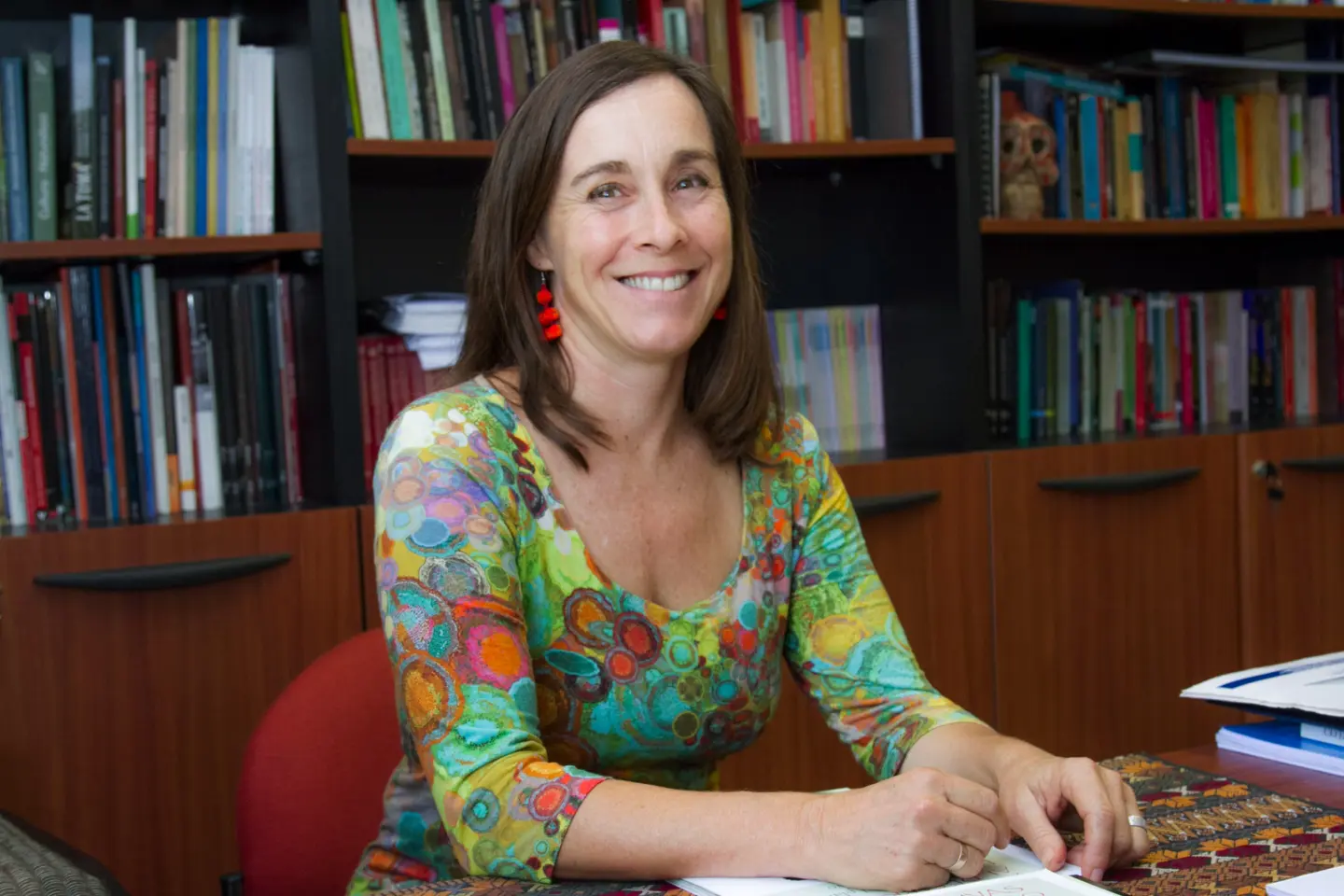
JOINING ENVIRONMENTAL AND SOCIAL JUSTICE IS NECESSARY IN AN ECO-SOCIAL TRANSFORMATION, MIRIAM LANG EXPLAINS. PHOTO: HUGO PAVÓN/UASB
Left-wing administrations, however, got on board with the perspective of growth brought about by increased demand for raw materials, which was largely driven by China. Although they implemented programs to transfer income, the economic structure remained the same and even became more entrenched. In Brazil, iron ore, soybeans, and oil have consolidated their place as the main products for export. During Lula’s first two terms (2003-2006 e 2007-2010), the famed rise of the C Class or “the new middle class” was not the result of a structural change in income distribution, but was achieved at a hefty cost to Nature, especially in biomes like the Amazon and the Cerrado.
For Lang, the Lula administration was mostly responsible for this frustration: “Brazil decided that it was more in its interest to join the Brics [the bloc of “emerging” countries led by China] and bet on being a global power. But the Brics play within the rules of neoliberalism and the globalized economy. Without Brazil, which has so much weight in the region, the other countries couldn’t move forward. Other much less visionary forces in relation to change also asserted themselves inside of the countries.”
Miriam Lang is part of the group that formed the Eco-social and Intercultural Pact of the South in 2020, a network of socio-environmental intellectuals and organizations. The group includes, among others, Argentinian sociologist Maristella Svampa, Brazilian and Spanish political scientist Breno Bringel, Colombian anthropologist Arturo Escobar, and Ecuadorian “post-development” theorist and economist Alberto Acosta, who was the president of the Constituent Assembly that drafted his country’s new constitution. “We talk about eco-social transformation to join social justice and environmental justice, which progressive governments have placed on opposite sides – there could only be one or the other. To the contrary, if there isn’t one, there won’t be the other,” Lang explains.
A central element of the Pact’s proposals is valuing the activities of caring – for Nature, children, the elderly, and the sick. “What is proposed is a change to the entire axis of economic and political organization, so the focus is no longer growth and money and is rather caring for life,” says Miriam Lang. For her, this change in “social and symbolic valuing” means redistributing these activities, now exercised mostly by women, among all the genders. But that isn’t all: it means keeping collective practices in mind when dividing the tasks of caring for expanded families and communities.
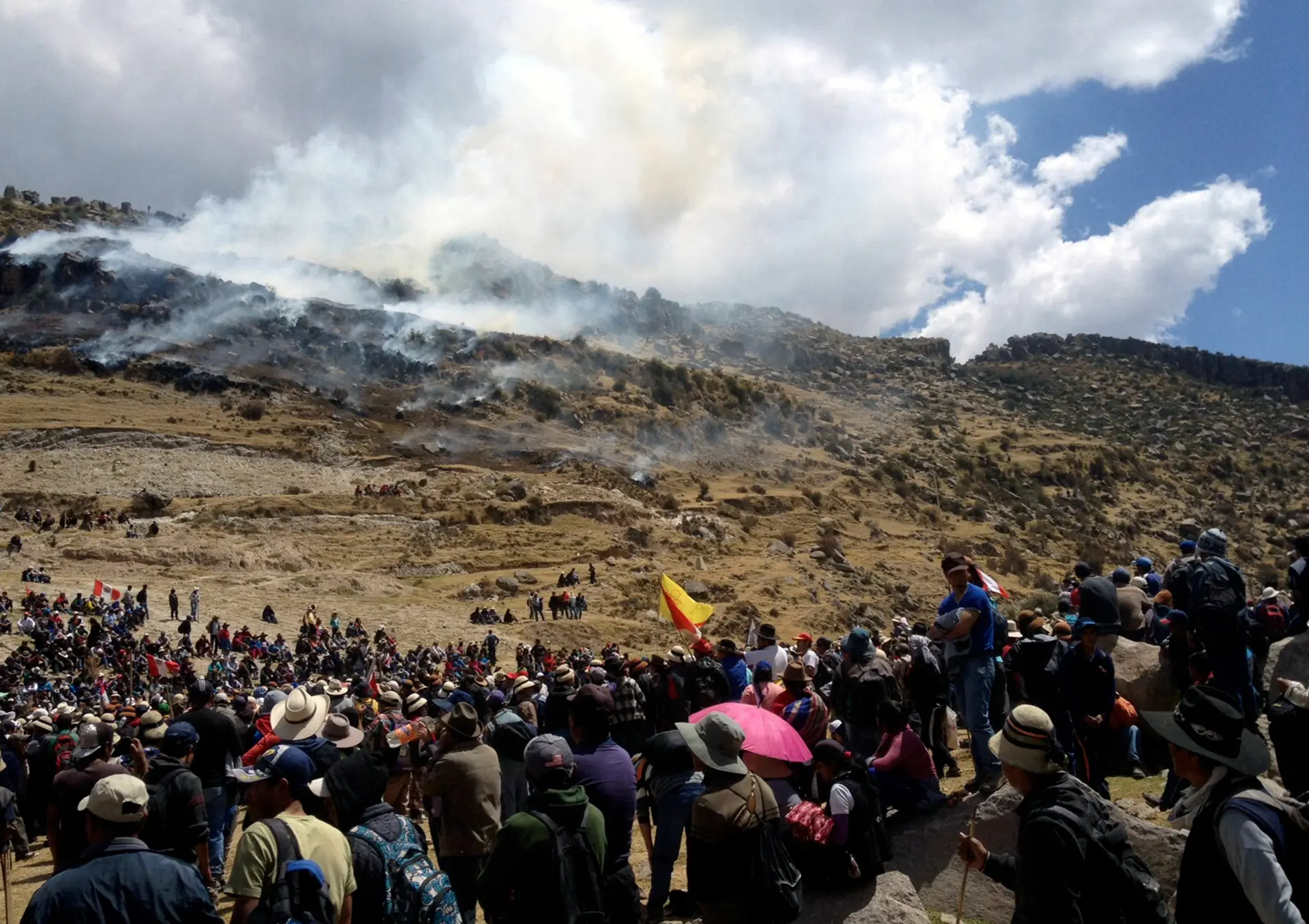
A PROTEST IN PERU AGAINST A COPPER MINE, ONE OF THE METALS IN THE ENERGY TRANSITION THAT IS GENERATING ‘GREEN NEO-EXTRACTIVISM.’ PHOTO: OBSERVATÓRIO DE CONFLITOS MINEIROS/AFP
Alberto Acosta co-authored, along with German political scientist Ulrich Brand, the book Salidas del laberinto capitalista: Decrecimiento y postextractivismo [freely translated, Exiting the Capitalist Labyrinth: Degrowth and Post-Extractivism], in which these proposals are described as “two sides of the same issue.” In the book, they explain the extractivism that should be overcome is one based on activities “that remove, mostly in an intensive manner, large volumes of natural resources” and on “agroindustrial crops that use lots of inputs, with the goal of exporting according to the demand of central countries, without processing – or with limited processing – of the products.” Traditional extractivism is lumped in with “green neo-extractivism,” the predatory extraction of materials from Nature that are needed for the energy transition, such as the lithium used in electric batteries or the sugarcane and corn that become biofuels.
Degrowth theories propose that most of the reduction in the use of energy and materials ripped from Nature should happen in the countries of the North, in order to open “ecological space” for the populations of the South to reach a dignified level of life. “Low-income countries, and indeed most countries in the global South, remain well within their fair share of planetary boundaries. In fact, in many cases they need to increase energy and resource use in order to meet human needs,” writes Jason Hickel in the book Less Is More. “To the extent that degrowth in high-income nations releases Global South communities from the grip of extractivism, it represents decolonization in the truest sense of the term.”
For Miriam Lang, this relationship is not automatic. It isn’t enough to say the countries of the South have to grow because they too need “completely rethink” their economies. In this reformulation, Beatriz Saes notes, it is fundamental to attack internal inequality – and Latin America is the most unequal region in the world, led by Brazil. “In a certain sense, degrowth applies to some of Brazil, if we were to think in terms of a more radical change in the types of sociability, the way of life we have here,” Saes says.
Miriam Lang emphasizes that, to favor a change in the model in the Global South, the international order must also change. In an article published in Global Dialogue magazine, she says that under the current conditions, a radical reduction in demand for raw materials could lead to a “catastrophic recession” in some countries. “There is a very strong and very asymmetrical interdependence,” she explains to SUMAÚMA. “Degrowth is always presented as something different from recession. There has to be a planned reduction, decided democratically, of the social metabolism with Nature. For this to be possible in today’s ultra-neoliberal global economy, it is necessary to change the rules of the game, the rules of trade, of finance, the rules associated with debt, the dispute among States and corporations, and it is necessary to balance decision-making in international bodies,” she adds.
The researcher cites the case of Indonesia, with its large reserves of nickel, used to make batteries. In 2020, the Asian country prohibited the export of raw nickel ore, as part of a policy to process it domestically. The European Union disputed the prohibition at the World Trade Organization and received a favorable ruling. Indonesia appealed, but the WTO’s appellate body has been paralyzed since 2019 because of a boycott by the United States. Amidst the trade dispute, reports have emerged linking nickel mining to deforestation, and the US government has pointed to forced labor at metal refineries operated by Indonesian and Chinese companies. The timing of the reports, although true, shows how human rights and the environment can be instrumentalized in geopolitical disputes.
In changing the international system, cancellation of foreign debt held by Global South countries comes up as an essential topic. After the formal decolonization of Africa and Asia, many nations borrowed money to finance their construction. In 1979, a brutal spike in interest rates in the United States made it impossible to pay debts owed in US dollars. Over the following years, the adjustments imposed by multilateral banks, like the International Monetary Fund and the World Bank, forced these countries to cut public spending and pay some of these debts. Most of the foreign debt owed today goes back to this time.
In a 2023 interview, Argentine sociologist Maristella Svampa, with the Eco-social and Intercultural Pact of the South, underscores that environmental and foreign debt are connected. Environmental debt forms because the prices paid for exported raw materials are lower than their cost of production, when considering environmental and social impacts. “Our countries have to keep exporting commodities to gain access to dollars and to continue paying interest on the debt – this is the case in Ecuador, in Argentina. This places them in an endless cycle,” Svampa says.
Colombia’s president, Gustavo Petro, has taken his proposal to exchange debt for climate action to international forums – allowing countries in the South to make investments and move their economies in a different direction. The Lula administration proposed a global tax on the fortunes of the super-rich, the nearly 3,000 people around the world who hold over US$ 1 billion. And the administration has also insisted on reforming multilateral banks to increase cash flows to financially poorer countries without raising their debt even more. Miriam Lang says there needs to be greater articulation between the degrowthers in the North and the eco-social movements in the South to make it possible to develop strategies to dismantle the current international hierarchy.
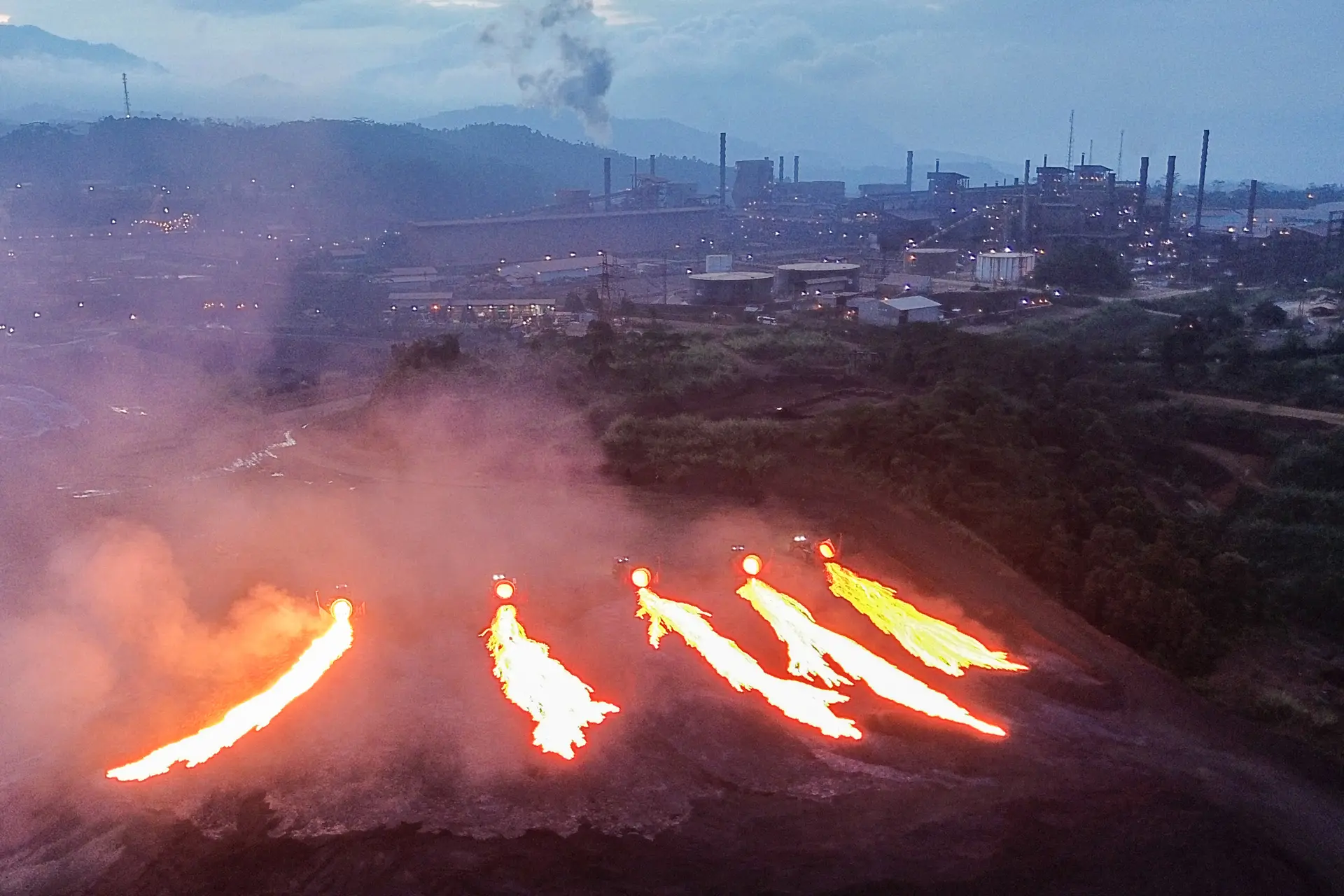
NICKEL BEING PROCESSED IN INDONESIA, WHICH IS IN A DISPUTE WITH THE EUROPEAN UNION OVER ITS PROHIBITION ON UNPROCESSED ORE EXPORTS. PHOTO: MUCHTAMIR ZAIDE/AFP
Brazil and selective degrowth
Although entrenched in the global imagination, Gross Domestic Product has only relatively recently been used as a measure of an economy’s success. The indicator was created during the Great Depression in the United States, in the 1930s, by economist Simon Kuznets. It was requested by the administration of Franklin Delano Roosevelt, a Democrat whose New Deal intervened against market deregulation and the concentration of wealth. Roosevelt’s team wanted an indicator that would easily measure where production was recovering and where it was still sluggish.
The indicator’s importance grew during World War II and it ended up being established as the main measure of a country’s progress in 1944, at the Bretton Woods Conference, held in England, which defined post-war economic institutions. Jason Hickel does not see this as happening by chance: GDP doesn’t measure the environmental and social costs of growth, because capitalism doesn’t measure these costs, he says. It is, therefore, a convenient indicator.
In a section in the book Degrowth: A Vocabulary for a New Era, Colombia’s Arturo Escobar also places the current connotation of the concept of “economic development” in the 1940s. “[It] became associated with the process to pave the way for the replication in ‘under-developed areas’ of the conditions characterizing industrialized nations,” he writes.
At the Economic Commission for Latin America, “developmentalism” became the paradigm. The commission proposed State intervention to promote industrialization and end the asymmetry condemning the region’s countries to being exporters of raw materials, cheaper than the manufactured products they were importing. The Marxist aspect of dependency theory challenged this analysis. It looked for the connection between the capitalists in the central countries and the peripheral countries and concluded that the latter couldn’t count on the so-called “national bourgeoisie” to get them out of this scheme. Development would therefore not be feasible under capitalism. However, as noted by Arturo Escobar, dependency theory maintained “the assumption of growth intact.”
Starting in the 1980s, following the timeline created by the Colombian anthropologist, a change started to happen. If the ideal before was global equality by making models uniform, what matters in “post-development” is difference and local experiences. In Brazil, this line of thinking is reflected in the writings of Indigenous intellectuals, such as Ailton Krenak, and by Quilombola thinkers, like Antônio Bispo dos Santos, better known as Nêgo Bispo. In their book, Alberto Acosta and Ulrich Brand state that post-extractivism “breaks with the concept of technologically-conceptualized ‘development,’ that is, aimed at a supposedly clear goal, which provides no room for alternatives.”
Despite this, the goals of growing and developing remain profoundly entrenched. For governments on the left, promoting GDP growth also means the possibility of expanding or maintaining space for social investments without clashing with the interests of local extractivist elites. When growth falls, conflicts over the distribution of wealth rise, as do disputes over the public budget – from which capitalists benefit with the payment of interest, subsidies, and tax breaks. “Being openly opposed to growth becomes electoral suicide in a corporate media environment that even frames mild Keynsianism as economically irresponsible,” Kallis writes in a 2017 article, referencing economist John Maynard Keynes (1883-1946), who argued for market regulation by the State.
A qualitative study published in the journal Ecological Economics listened to what activists at environmental justice organizations in Latin American and African countries had to say about degrowth. In general, the term is seen as having no appeal, as being Euro-centric, and as unconnected to the demands of the population in these regions. “For many people in the South (…), ‘degrowth’ will not make sense because of their own histories and experiences, which often go through situations of poverty and lacking the most basic needs. Some ‘growth,’ to achieve greater security in terms of survival, is seen as logical,” the study’s conclusions point out. “Focusing the struggle on degrowth is therefore not only perceived as outside of what is important, but also to some extent a ‘frivolous debate,’” the study says.
The word degrowth is considered politically toxic, and the members of the Brazilian Society of Ecological Economics resist using it as a proposal for Brazil. “We’re going to do what needs to be done in terms of policies, trying to find a new model for our economy, and then see what happens with the GDP. The GDP is the least important in terms of our objectives,” says Beatriz Saes.
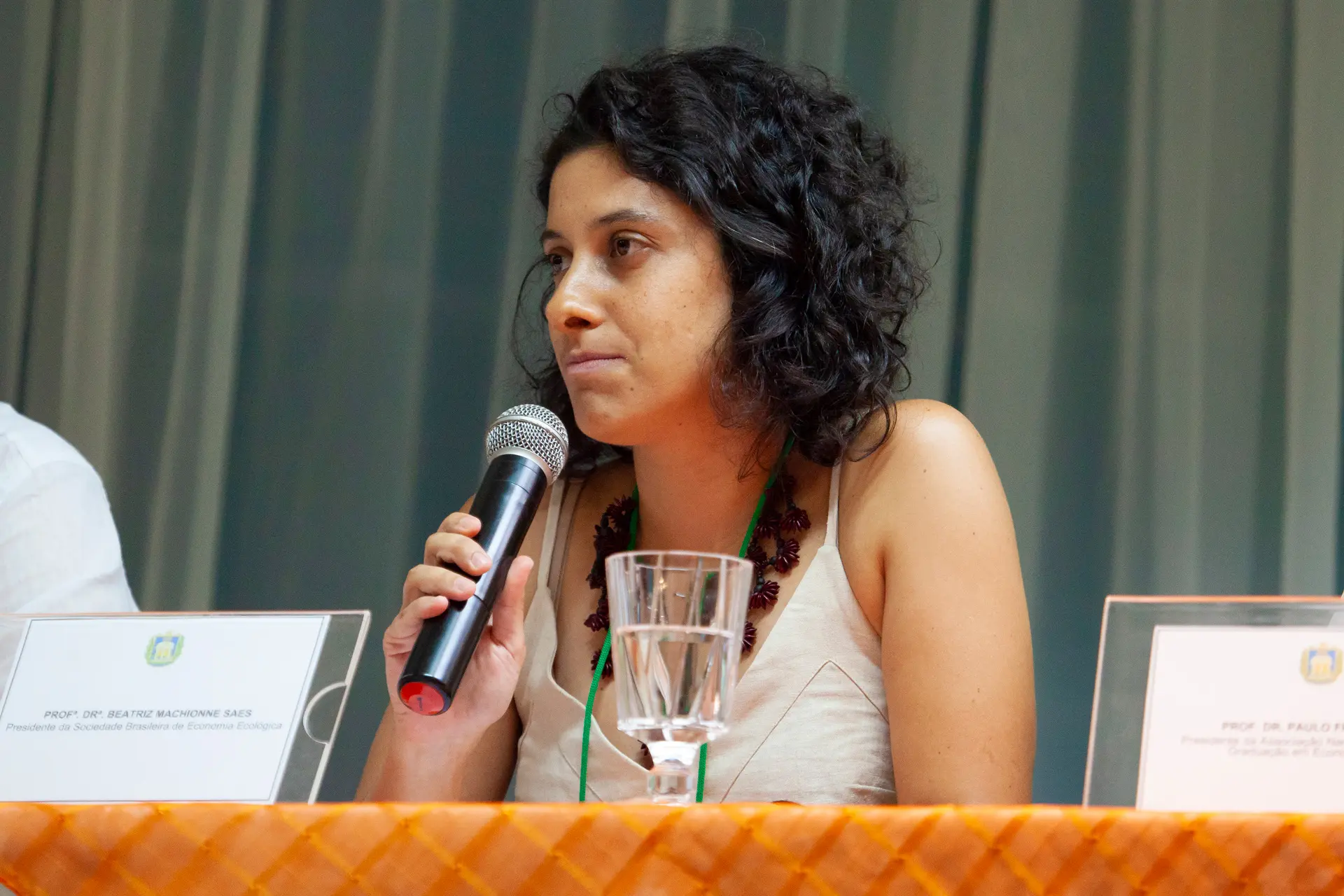
BRAZIL, A LEADING COUNTRY WHEN IT COMES TO INEQUALITY, NEEDS TO FIND A NEW ECONOMIC MODEL, BEATRIZ SAES SAYS. PHOTO: MARCO RACCICHINI
Her colleague Andrei Domingues Cechin, a professor at the University of Brasília, is even more cautious when saying it is necessary to find a “positive idea” that goes beyond denying the current economic system. “Thinking in the long term, it doesn’t make sense for the global economy to think you’re going to continue growing production and consumption and reducing environmental impacts. This is very likely not possible,” Cechin tells SUMAÚMA. “But, for a specific historical period, for a specific country like Brazil, perhaps it isn’t just possible, but desirable,” he argues.
Andrei Cechin mentions the “Green New Deal for Brazil” project as an example, introduced in 2022 by a team led by Carlos Eduardo Young, a professor at the Economics Institute at the Federal University of Rio de Janeiro. The “green new deal” project plans for transformations that will make transportation and agriculture less harmful to the environment, in combination with massive investments in housing, sanitation, and forest restoration. Some specific proposals, such as guaranteeing “green jobs” for unemployed people, match degrowther proposals.
Yet what is most interesting is how this program would be financed by the government. Among the sources of funding indicated are raising taxes on fossil fuels, large rural properties, and inheritances. Other sources would be ending agrochemical subsidies that run into the billions, as these companies pay almost no tax in Brazil; taxes on dividends, as the company earnings are called when they are distributed to shareholders and that are also currently tax-exempt; and the creation of a tax on large fortunes.
In light of the current political conditions, marked by the dominance of the neoliberal right and the advance of the far right and its goal of undermining anything public and collective, passing these proposals would represent a shift as major as the transition measures suggested by the degrowthers for wealthy countries. It would be “selective degrowth,” as Cechin says, where polluting activities would be prevented and wealth would be better distributed.
One frequent argument is that degrowth has more appeal in European countries and in Japan, where GDP has risen slowly. In the United States, where growth guides policy, the proposal runs into resistance even among left-aligned people. One of them is economist Robert Pollin, who co-authored, along with the linguist and intellectual Noam Chomsky, the book Climate Crisis and the Global Green New Deal: The Political Economy of Saving the Planet.
In a 2018 article in the New Left Review, Pollin says he shares degrowthers’ values and concerns. However, he argues, they miss the mark because the central problem does not lie with growth, but rather with neoliberalism. Pollin’s idea is that today’s capitalists are making more by speculating on financial markets, and with this they are lessening investments in the so-called “real economy.” The concentration of income and wealth has risen, while at the same time economic growth is falling in rich countries.
Robert Pollin advocates for massive spending on energy efficiency and renewable energy as a way to address the climate emergency. Yet he recognizes that, even in this scenario, after 20 years the greenhouse gas emissions per inhabitant in the United States would be three times greater than the average for the rest of the world. As a matter of justice, the right thing would be to demand equality in emissions, with wealthier countries and richer people in all countries lowering what they emit to the world average. Nevertheless, the economist acknowledges “there is absolutely no chance that they will be implemented” and “we do not have the luxury to waste time (…) fighting for unattainable goals.”
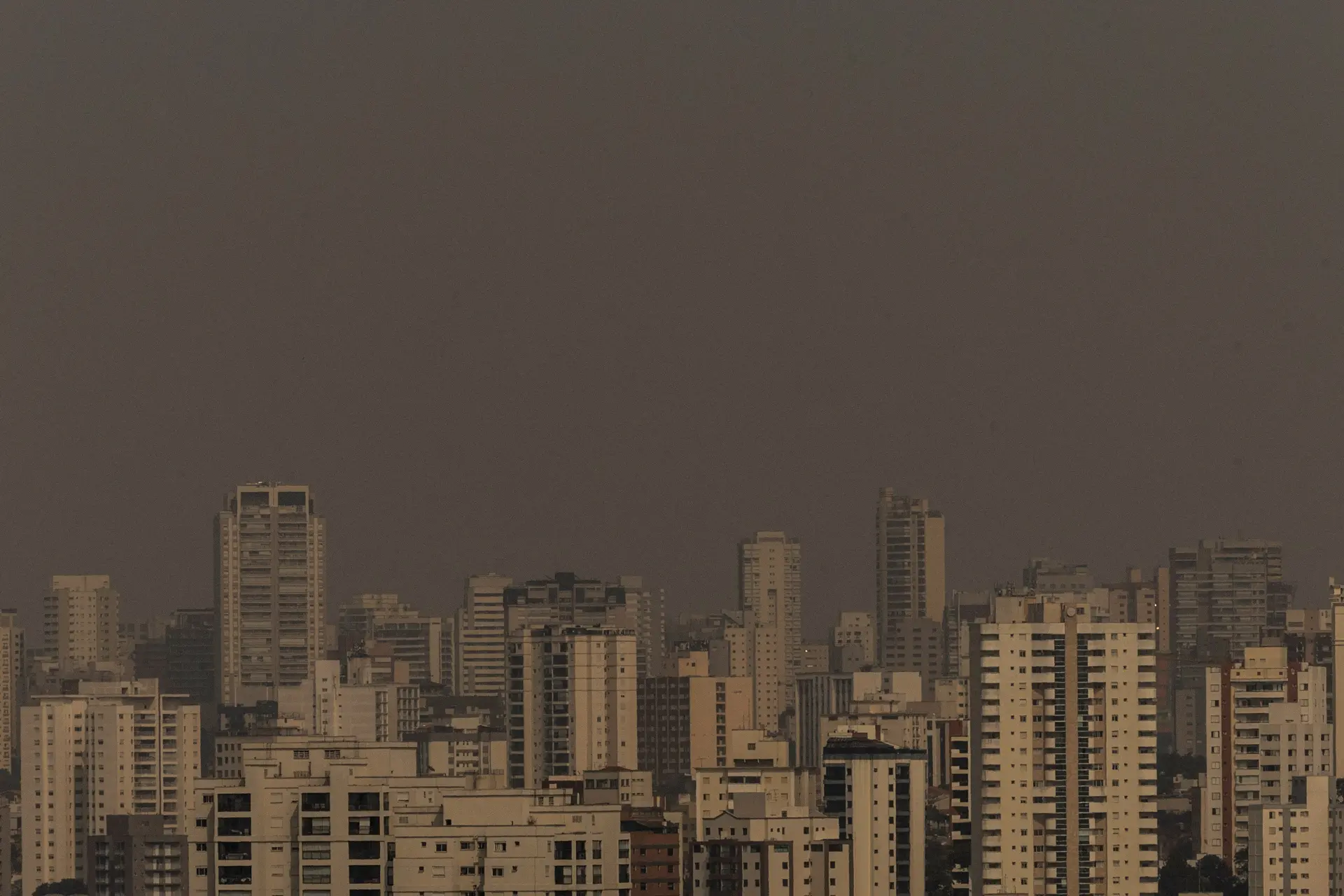
AIR POLLUTION IN SÃO PAULO, THE LARGEST CITY IN A COUNTRY THAT SUBSIDIZES THE RICH AND ACTIVITIES HARMFUL TO THE ENVIRONMENT. PHOTO: FABIO VIEIRA/FOTORUA/NUR PHOTO/AFP
A world of Pepe Mujicas
Degrowth, post-extractivism, and eco-socialism thinkers advocate for a post-capitalist horizon, but there is still not total clarity about what would come next. In part, the difficulty comes from the experiences of centralized and authoritarian States in the 20th century, against which they contrast the idea of an “expanded democracy.” Jason Hickel says degrowth is not “the command-and-control fiasco of the Soviet Union, or some back-to-the-caves, hair-shirted disaster of voluntary impoverishment.”
He usually cites studies where most of those interviewed support the policies proposed by the movement. “There are still difficult questions to which we don’t yet have all the answers. No one can give us a simple recipe for a post-capitalist economy,” he writes “Ultimately it has to be a collective project.”
Giorgos Kallis recognizes the challenge of reducing inequalities globally is huge. If it would not be enough for rich countries to better share what already exists, a global equalization would require increasing energy consumption in absolute terms, he explains. He wrote that he is betting “on a social miracle.” “Standards of living can improve without growth by a change of desires and expectations, or a shift from valuing material goods to valuing relations,” he wagers. It would be like a world of Pepe Mujicas, the former president of Uruguay who donated most of his salary and lived on the same farm, where he grew flowers, when he entered and left office.
For the members of the Eco-social and Intercultural Pact of the South, the lack of a complete project is on purpose. “We have to get used to the fact that there is no single recipe for social transformation, like there was in the 19th and 20th centuries,” says Miriam Lang. She mentions philosophies of change similar to Good Living that exist in Africa and India: “When we put a lens on on-going alternatives, there are many. Except the dominant discourse has accustomed us not to look at these alternative processes, because it insists on categorizing them as irrelevant, backwards, primitive, or simply local. In other words, it systematically disqualifies them,” Lang says.
She believes that socialism “has expired as a utopia” because it can’t shed its history. Beyond this, she adds, the strong State that appears in degrowther proposals comes from a nostalgia for welfare states, which “could only exist as the more human face of capitalism by being based on global injustice.” In the South, she says, States will also have to take on responsibilities in regulation, planning, and building infrastructure. “But this potential for populations to organize and collectively take on the definition of their own destiny, while also caring for themselves, including partial self-production of infrastructure, is very high and shouldn’t be ruled out,” she says..
Alberto Acosta, the Ecuadorian economist, writes that both degrowth and extractivism are terms with “scant symbolic effectiveness” and it is necessary to find expressions that can “dialog with broad segments of the world population and raise their support.” At any rate, proposals would be multiple, as they would be based on concrete experiences in different countries and regions. Good Living is just one of them. “With Good Living proposals, the intention is not to ‘return’ to the past or idealize Indigenous or community ways of life. It is an attempt to recognize and respect the multiple knowledges, experiences, and life practices existing in the region,” he explains.
A famous quote from German thinker Walter Benjamin (1892-1940) is usually found in these debates. Benjamin questioned the idea that technical progress would always lead humans to high degrees of evolution. In the last text he wrote before he died, when he was trying to reach Spain while fleeing the Nazi advance, he stated, “Marx says that revolutions are the locomotives of world history But the situation may be quite different. Perhaps revolutions are not the train ride, but the human race grabbing for the emergency brake.”
Facing the collapse of the climate and Nature and the advance of denialism, not just on the far right, but also among those doing nothing to stop it, pulling the emergency brake may be both a conscious choice and an unavoidable outcome of a planetary catastrophe. As the title of a book by Canadian ecological economist Peter Victor suggests, the brake can be pulled by design or by disaster.

FOR PEPE MUJICA, WHO LIVED ON HIS FLOWER FARM WHEN HE ENTERED AND LEFT OFFICE, CONSUMPTION IS NOT HAPPINESS. PHOTO: SCREENSHOT/INSTAGRAM
Learn more
Degrowthers – The word “degrowth” emerged in the 1970s, but the degrowth movement picked up steam in Europe during this century, bringing together people from different lines of thinking who advocate for an economic organization compatible with Earth’s ecological limits. The movement questions the capitalist logic of continued growth and argues for a reduction in the consumption of natural resources and energy, distribution of monetary wealth, prioritizing investments in collective goods and public services, and fewer hours of work.
Books:
- Degrowth: A Vocabulary for a New Era – multiple authors (Routledge)
- Farewell to Growth – Serge Latouche (Polity)
- Less Is More: How Degrowth Will Save the World – Jason Hickel (Penguin)
- Website: International Degrowth Network
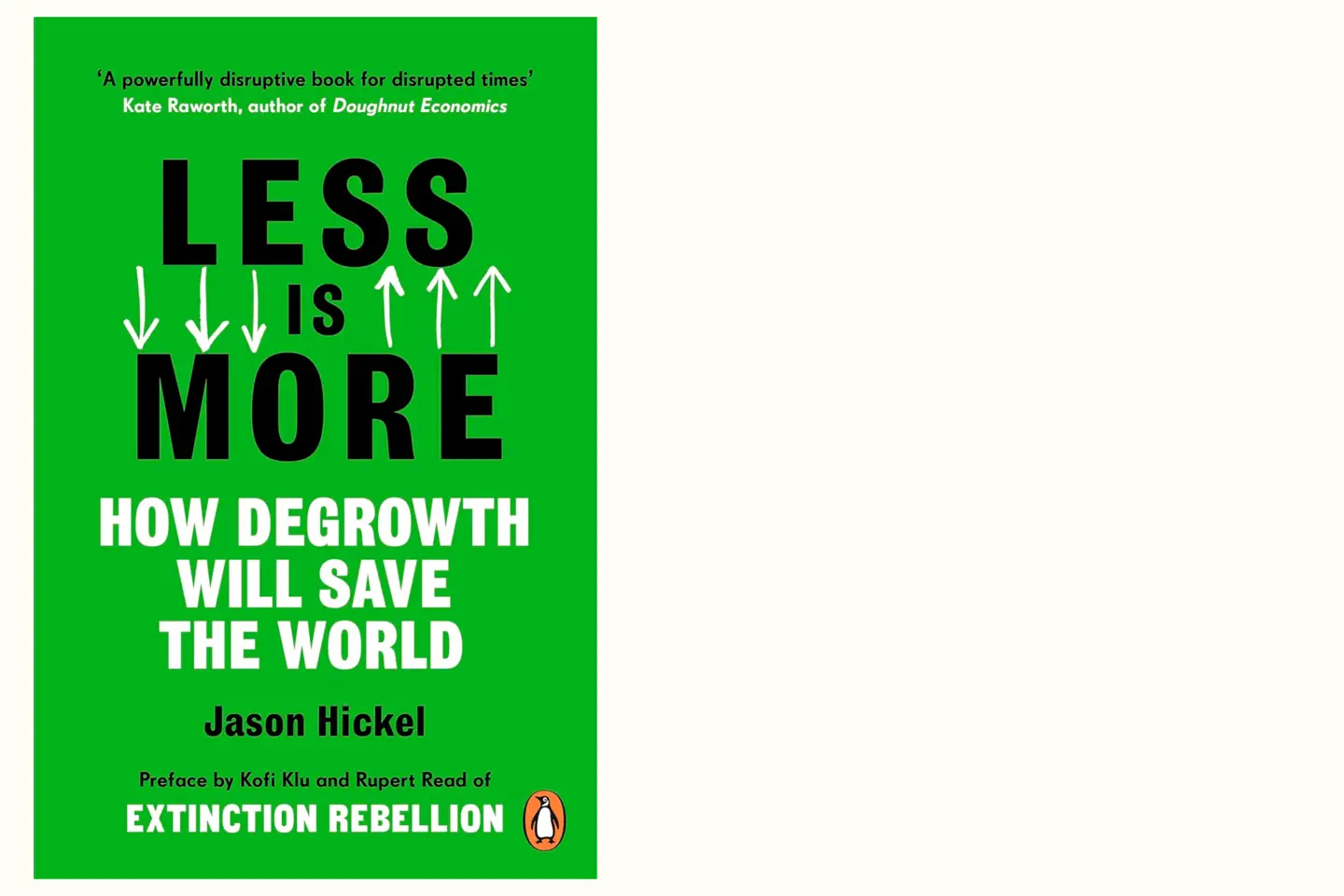
Jason Hickel examines what a post-Capitalist economy might look like in Less is More. Photo: Penguin Books
Post-extractivists – Intellectuals and social movements in Latin America who question the idea of development as an imitation of the trajectory of financially wealthy countries. They argue the model based on extracting and exporting resources from Nature must be overcome. They talk about an eco-social transition, where social justice is compatible with environmental justice, with a focus on “care” – for the environment, sick people, old people, and children. They also question an international hierarchy that ‘others’ countries in the Global South.
Books:
- Salidas del laberinto capitalista: Decrecimiento y postextractivismo – Alberto Acosta and Ulrich Brand, in Spanish (Tinta Limón and Rosa Luxemburg Foundation)
- El Buen Vivir: Sumak Kawsay, una oportunidad para imaginar otro mundo – Alberto Acosta, in Spanish (Icaria editorial)
- The Geopolitics of Green Colonialism: Global Justice and Ecosocial Transitions – multiple authors (Pluto Press)
- Website: Eco-social and Intercultural Pact of the South
Eco-socialists – Marxists critical of the development models of both capitalism and so-called “real socialism,” as existed in the former Soviet Union. An imperative to stop the climate and ecological catastrophe is at the core of their proposals, alongside social justice. Many of the eco-socialists also argue for planned degrowth and global equality in consumption of resources and energy as a strategy to save life on the planet and achieve a different socialist society than the ones that came before.
Books:
- O que É Ecossocialismo (What is Eco-socialism) – Michael Löwy, in Portuguese (Questões da Nossa Época collection, Cortez)
- Se Quiser Mudar o Mundo: um Guia Político para Quem Se Importa (“If You Want to Change the World: a Political Guide for Those Who Care”) – Sabrina Fernandes, in Portuguese (Planeta)
- Slow Down: The Degrowth Manifesto – Kohei Saito (Astra House)
- Facing the Anthropocene: Fossil Capitalism and the Crisis of the Earth System – Ian Angus (Monthly Review Press)
- Website: Climate and Capitalism
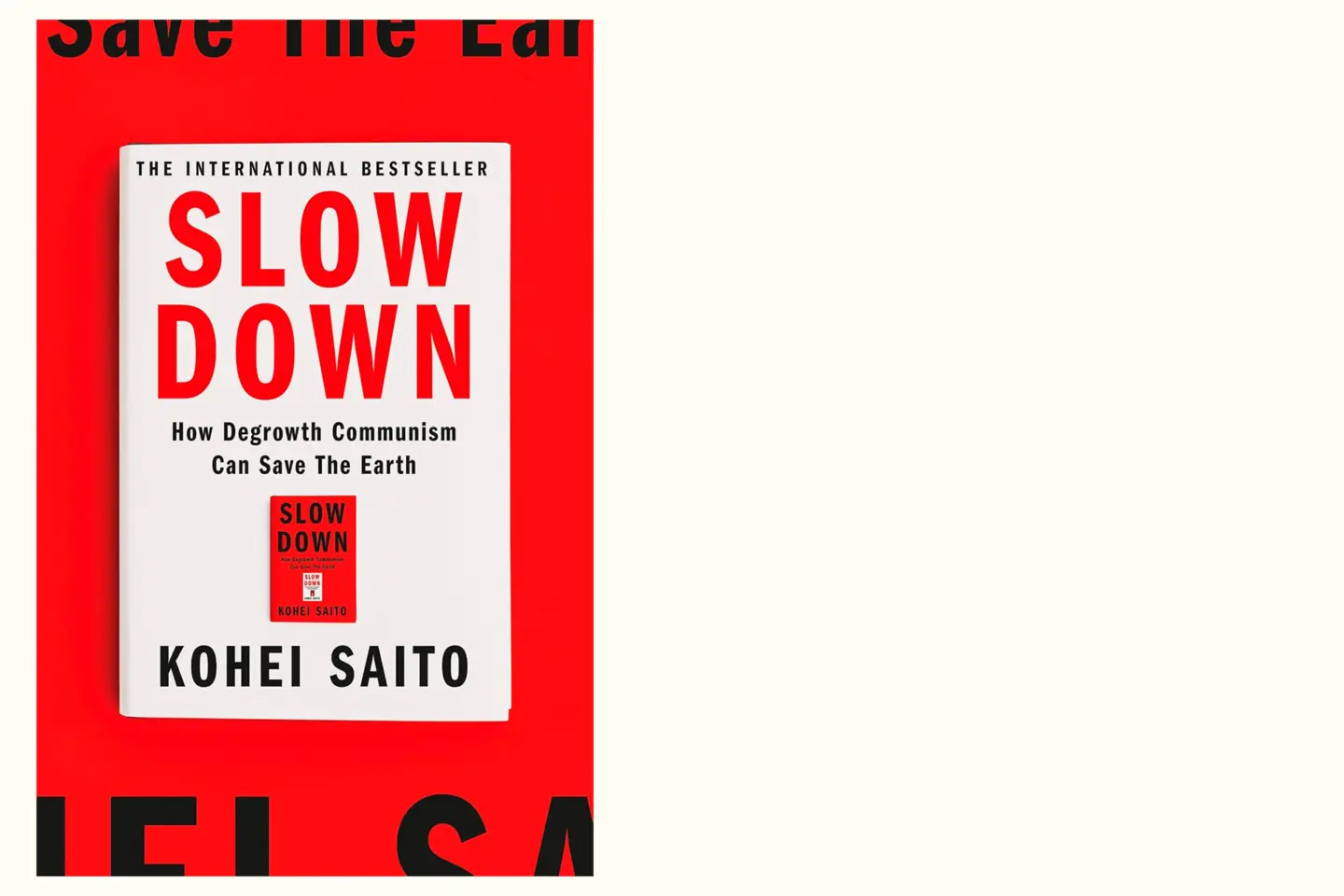
Kohei Saito argues that to stop the climate crisis, its true cause must be dismantled: Capitalism. Photo: Astra House
Editing: Eliane Brum
Photo Editor: Lela Beltrão and Soll
Fact-checker: Gustavo Queiroz and Plínio Lopes
Proofreader (Portuguese): Valquíria Della Pozza
Spanish translation: Meritxell Almarza
English translation: Sarah J. Johnson
Copyediting and finishing: Natália Chagas
Editorial workflow: Viviane Zandonadi
Editor-in-chief: Talita Bedinelli
Editorial director: Eliane Brum





